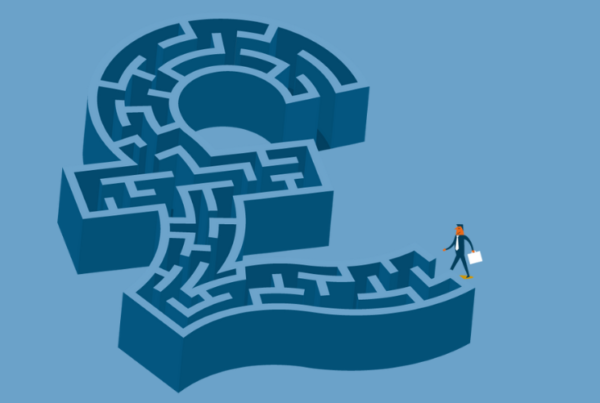The new year was a great time to overhaul your life for the better. I don’t know where the first quarter has gone – but it has and I wonder how you are doing now?
One excellent place to start is by making solid financial resolutions that can help get you closer to your money goals, whether it’s increasing your retirement savings or setting enough money aside for a down payment on a house. Make this the year that you sit down and create a solid financial plan for yourself. If you are married, this needs to be something you work on together. Your financial plan should address things like when you want to buy a home, when you want to retire. It can also include things like taking your dream vacation, buying a new car or savings for you children’s college education. Your financial plan is like a road map that you can follow to reach your goals. The more detailed it is, the easier it can be to reach your financial goals. You may need to make adjustments to your plan as your life changes. That is to be expected, but if you have a solid plan that you have been following, it can be easier to make those changes. Here are a few you might consider adding to your own personal agenda. Have a clear, concise financial goal for the year. It isn’t good enough to say, “I want to have my credit card paid down and more money in the bank.” Instead, you should write a financial resolution that is clear and actionable like, “I will have the balance on my credit card paid down to $0, and over $5,000 in my savings account, and a fully funded pension”. Your budget is the most effective tool that you have for managing your finances. It is so important to follow a budget each month. Your budget allows you to choose how you spend your money. You need to find the software or budgeting method that works for you and really stick to your budget. This will open up doors and make it easier to reach your other goals. Take the time this year to set up a monthly budget, and to follow it. You will be amazed at how much you can accomplish if you can just master budgeting. Not all debt is equal. Make a list of your liabilities and organize them by the annual interest rate. Those with the highest rates (most likely your credit card debt) should be paid off immediately. It does no good to invest money while you are paying 19 percent or more in interest each year. In a lot of cases, the wisest course of action is to sell any readily available assets, or other cash holdings and use them to pay the down the balance in full or in part. Why? If you owe $10,000 on your credit card and pay 19 percent interest annually ($1,900 per year), while at the same time, own a $10,000 deposit at a bank, paying you 4 percent interest ($400 a year), you would actually save yourself $1,500 a year by making a resolution to pay debt! If you haven’t done so already, open a Personal Pension or IRA if from the US and start making contributions to it. If you can’t start a pension plan because you are an Expat and you do not qualify for tax relief, start a regular savings plan and benefit from dollar cost averaging and the magic of compound interest. Banks and financial institutions charge fees for everything under the sun. Is it really necessary to have several credit or check accounts? Although there are exceptions, in the vast majority of cases the answer is a firm no! Any time you pay for things with cash, only spend whole dollar amounts. If you go to the grocery store and your purchase total comes to $67.39, pay $70 in cash and pocket the change. The first thing you should do when you go home is to throw the money in a large container (empty water jugs are perfect). Think of it as a piggy bank for adults. If you adhere to this policy and don’t spend any of the change, you are likely to save several thousand dollars over the course of a year. Use the money to pay down debt, buy stocks and shares, or to go on holiday. Existing portfolios can drift over time as different investments held don’t all move in tandem, which can lead to a situation where the risk profile of a portfolio mutates into something very different from what may have originally been intended. And of course, individual investments that may have been worth backing in the past might need to be reassessed from time to time.
“For these reasons, it is vital to review your portfolio and potentially give it the equivalent of a ‘detox’ at least once a year. If you are not already doing so this a is a really good time to seriously consider whether you should entrust your investments to a private client investment manager or adviser to select your holdings, monitor and adjust them throughout the year to make sure they remain suitable. One of the things that can frustrate an investor’s ability to effectively manage and review their investments is when they are scattered around in different accounts.
This is especially true of pensions, because people can end up accumulating several as they change jobs during their working lives. These days however, the ISAs and Self-Invested Personal Pensions offer an incredible amount of choice within a single account. Consolidating your investments might therefore enable you to have greater control over your investment strategy, without sacrificing choice.
However, before consolidating your pensions, it is important to check with each pension provider that there won’t be any excessive penalties or loss of valuable benefits and this is something a financial planner will be able to help with. (Please follow this link to a fuller article about expat wills)
“Many people don’t like thinking about the inevitability of their death and it is estimated that around two thirds of adults have not made a Will. Dying intestate can leave your loved ones and dependants in a terrible financial state.
“Yet even if you have written a Will, it is important to review this periodically to make sure it is up-to-date with current rules on inheritance tax, your circumstances and wishes. A sensible timescale is to review your Will every five years but to act sooner if you have experienced any major changes in your life recently such as divorce, marriage, the birth of a child of death of a named executor in your Will. “Pension contributions have long offered some of the most considerable tax relief for those subject to the higher rates of income tax, who can get effective relief at their marginal rate meaning a £10,000 gross contribution from a 40% tax payer has a net cost of just £6,000.
“Yet the long term future of these reliefs, which represent a considerable cost to the taxman’s coffers, cannot be guaranteed. They have already been reduced under both Coalition and Conservative governments and would seem an easy target for a potential Corbyn-led Labour administration. Well if you haven’t had much success with your resolution in the first quarter, all you have to do is to start now and you should be in a far better place financially by the end of this year, than you were at the beginning.
By Brian Spence
Read more at vietnamnews.vn





